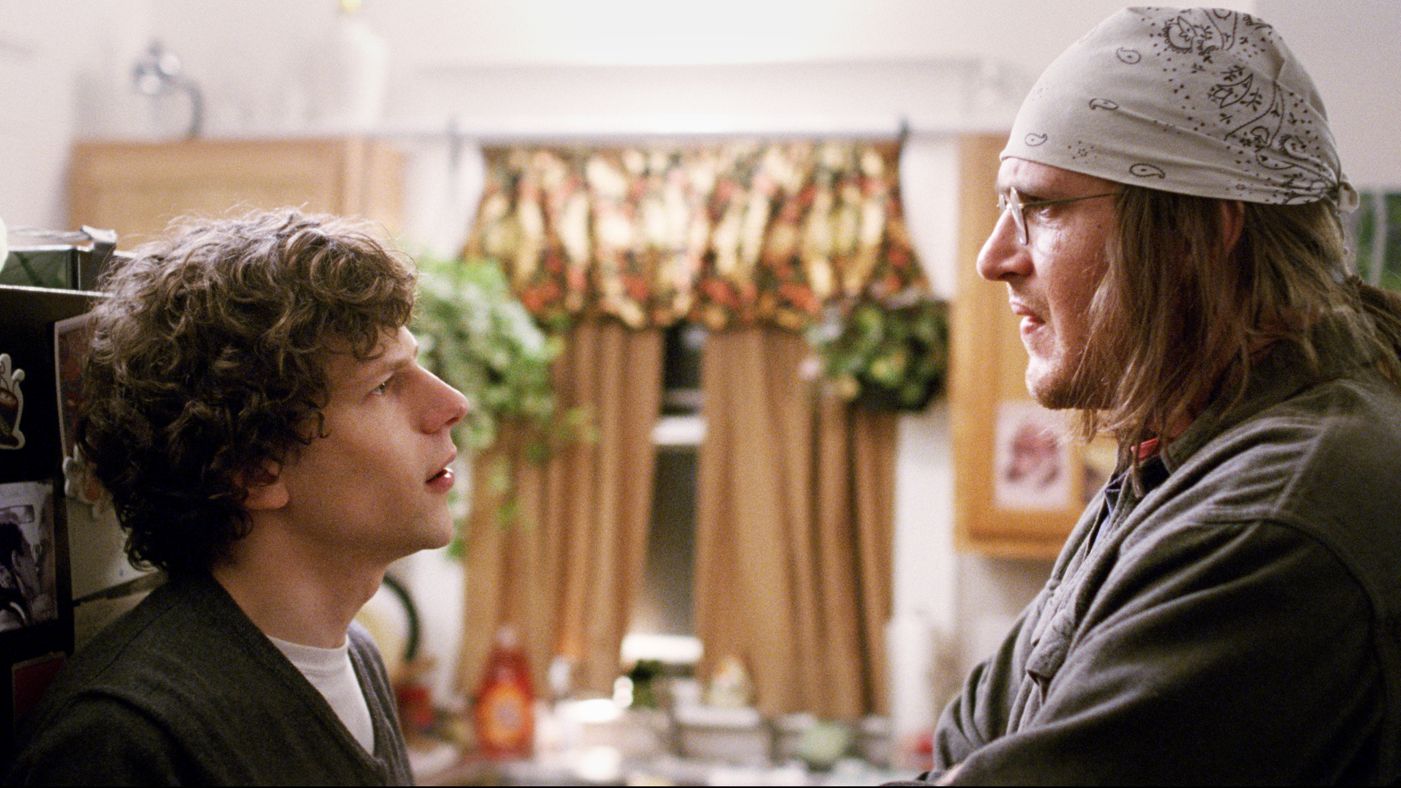The End of the Tour [2015] is a drama that details Rolling Stone journalist David Lipsky’s 1996 interview with David Foster Wallace, author of the then-recently published 1000+ page novel, Infinite Jest. Starring Jesse Eisenberg as Lipsky and Jason Segel as Wallace, the film marks rising star indie director James Ponsoldt’s fourth effort.
Somber or somnambulant? Opening in 2008 with the revelation of Wallace’s suicide, this movie’s tone strikes a somber chord right off the bat. As the setting quickly flashes back to the 1996 interview, the somber tone remains and is a fitting backdrop as Lipsky’s interview of Wallace grows increasingly intimate as the two get to know each other during the last leg of Wallace’s Infinite Jest book tour. Fitting as it may be, the seriousness of the film’s tone comes across as a bit heavy-handed at times. Whether it’s the mostly uninspired ‘90s-era soundtrack or the Wallace quotes that bask shamelessly in their own profundity, I could not help but think the movie was taking itself a bit too seriously. Seriously in that indie movie way that is perfectly suited for late night college dorm viewings, but that may make those same viewers groan a few years down the road. And I say that while trying not to overly diminish this overall fascinating depiction of a complicated literary figure.
Must-see Segel. Thankfully, the film’s unspectacular aesthetics are balanced by a truly standout performance from Jason Segel. Not that Segel’s ability to anchor a movie should surprise anyone (many of the fruits of his long-time comedic partnership with Judd Apatow showcase his star presence), but this role marks his first foray into pure drama. And pure drama it is - there is virtually no humor on display here. Even the few lighthearted scenes of Lipsky and Wallace eating junk food and seeing goofy action movies eventually turn into eloquent observations on mankind’s pleasure-seeking tendencies. Getting back to Segel’s performance, he admittedly drew on his own struggles with substance abuse, fame, and success and that authenticity is not hard to see in his portrayal of the similarly-troubled Wallace. Segel plays Wallace with a monotone voice and an almost boringly down to earth persona. In this way, Segel makes it easy to see why Wallace was so lonely and had a hard time forming serious relationships. As brilliant as Segel is, however, Eisenberg is more or less plays Lipsky using his typical shtick as a nervous fast-talker. It works, but in a movie like this that really has only two characters, his performance is serviceable at best next to Segel’s triumphant dramatic turn.
Less is more. While I may seem to be berating most aspects of this movie, the whole package ultimately comes together to form something decidedly worth seeing. Even if the non-Segel-related mechanics of the movie are largely unremarkable, the bottom line is that Wallace was a fascinating person bursting with ideas whose life story is well-suited for a cinematic treatment. Like some of the best biopics (think Danny Boyle’s Steve Jobs [2015]), Tour derives much of its effectiveness by only giving screen time to a very small slice of Wallace’s life. In this way, the film avoids rote play-by-play and is able to extrapolate a much bigger picture of Wallace than might otherwise be possible.
Directed with a sure hand, taking cues from some the best of its genre, and featuring what may become one of Jason Segel’s career-defining roles, The End of the Tour is an intimate biopic well worth checking out.

